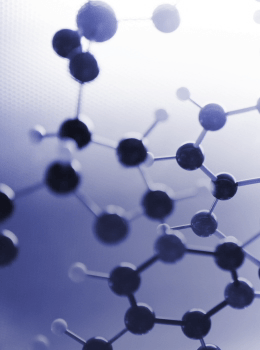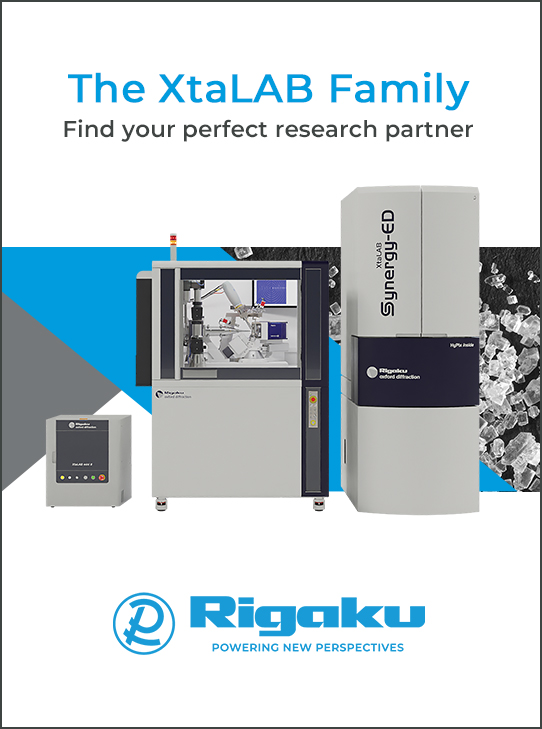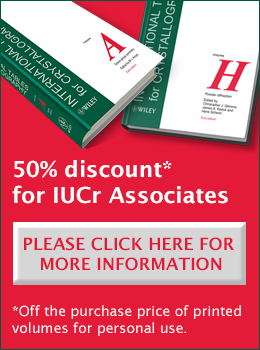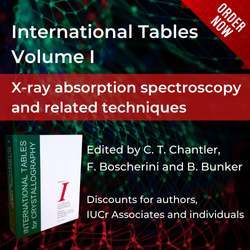
Crystallography in Africa
Bridging continents through crystallography: how AFRAMED is revolutionizing scientific collaboration in Africa
![AFRAMEDthumbnail [AFRAMEDthumbnail]](https://www.iucr.org/__data/assets/image/0003/158628/AFRAMEDthumbnail.jpg)
A report on the Second Session of AFRAMED Training, from 28 August to 23 September 2023.
The field of crystallography has long stood at the forefront of scientific discovery, offering insights into the atomic structure of materials and paving the way for innovative applications in various industries. The AFRAMED project, spearheaded by Professor Claude Lecomte, stands as a testament to this pioneering spirit. Officially inaugurated on 31 August 2022, AFRAMED (Appui à la Formation et la Recherche en Afrique par des Mesures à Distance) symbolizes a bridge of knowledge and expertise, connecting researchers across continents through the power of remote measurement technology.
AFRAMED goes beyond just providing remote access to equipment. It is about building a sustainable ecosystem for scientific research and education. The project fosters collaboration between African and French researchers, facilitating knowledge exchange and mentorship. This partnership is instrumental in developing local expertise and capacity in crystallography, thereby nurturing the next generation of African scientists.
The AFRAMED journey: from concept to reality
AFRAMED emerged as a vital solution to a pressing challenge: advancing the field of crystallography in Africa. The project's innovative approach lies in its use of remote operation technology. This allows African researchers and students to conduct advanced diffraction experiments using a French diffractometer, all from the comfort of their local laboratories. This innovative methodology not only bridges geographical distances but also opens new horizons in scientific exploration and learning.
Our collective experience in AFRAMED: a journey of discovery and collaboration
Our journey as part of the second AFRAMED training session was a comprehensive and enriching experience that spanned various facets of crystallography. As a group of four, hailing from different African countries (Senegal, Congo, Côte d'Ivoire and Algeria), we delved into an intense month of learning and exploration at the CRM2 laboratory, University of Lorraine, Nancy, France.
![[AFRAMEDFig1]](https://www.iucr.org/__data/assets/image/0004/158629/AFRAMEDFig1.jpg)
The training commenced with an in-depth exploration of crystallography's theoretical aspects. We engaged in insightful lectures presented by Dr Emmanuel Wenger that unravelled the complexities of X-ray diffraction and its critical role in material science. This theoretical foundation was crucial as it laid the groundwork for our practical sessions.
The practical aspects represent the most central part of this training course and have been made possible thanks to the availability of equipment on the PMD²X platform at CRM². This practical training was an immersive experience with the state-of-the-art Bruker D8 Venture diffractometer. Under the expert guidance of Dr Emmanuel Wenger, Dr El-Eulmi Bendeif and Professor Claude Lecomte, we delved deep into the nuances of crystallography. We began by learning how to meticulously select and mount single crystals – a task that requires a keen eye for detail and a steady hand. Each crystal was carefully chosen based on its size, shape and quality, ensuring optimal results for our experiments.
Our training also extensively covered the use of advanced crystallographic software. We became adept at using Bruker APEX4 for data collection and processing. This software's intuitive interface and powerful features allowed us to efficiently navigate through the complexities of X-ray diffraction data. Additionally, we explored the capabilities of Olex2, a versatile tool for structure resolution and refinement. Working with Olex2, we learned how to interpret the diffraction data, solve crystal structures and refine them to obtain accurate and reliable results.
![[AFRAMEDFig2]](https://www.iucr.org/__data/assets/image/0005/158630/AFRAMEDFig2.jpg)
These practical sessions were more than just learning how to operate equipment and software; they were an exercise in translating theoretical knowledge into real-world applications. We not only honed our technical skills but also developed a deeper understanding of the intricate relationship between crystal structure and its properties. This comprehensive approach to training equipped us with a profound skill set, ready to tackle the challenges in the world of crystallography.
Our collaborative efforts led to the identification of several novel structures, which are now set to be detailed in forthcoming publications. These discoveries not only enhance the scientific knowledge base but also symbolize the fruitful collaboration and skill-sharing fostered by the AFRAMED initiative.
Collaboration and diversity: enriching the learning experience
Our diverse backgrounds added significant value to the training. The exchange of ideas, experiences and cultural insights among us enriched the learning environment. This diversity fostered a deeper understanding and appreciation of the scientific community's interconnected nature.
Our experience in the AFRAMED training session was transformative. It went beyond acquiring technical skills; it was about being part of a ground-breaking initiative that is paving the way for advanced scientific collaboration across continents.
Synchrotron visit: a glimpse into advanced research
Our training ended with a two-day visit to the SOLEIL Synchrotron. It was organized by Dr El-Eulmi Bendeif with the scientists of the beamlines that we visited (CRISTAL, DIFFABS, PSICHE, SIXS, ROCK and PROXIMA1). Dr Jean Daillant (Director General of SOLEIL) gave a welcome speech highlighting the applications of synchrotron research to crystallography. This experience provided us with a unique perspective on these applications.
![[AFRAMEDFig3]](https://www.iucr.org/__data/assets/image/0006/158631/AFRAMEDFig3.jpg)
Making a mark: remote sessions and workshops
Post-training, remote sessions and workshops were actualized with notable success, demonstrating the practical application of our training. Remote sessions have been organized in Côte d’Ivoire and Algeria using the Nancy diffractometer. The next sessions are planned for Cameroon, Congo and Senegal.
Remote sessions and workshops in Côte d’Ivoire
After the Nancy training, a remote access tool for X-ray single-crystal measurements was presented to Ivory Coast colleagues by Lecturer Dr Eric Ziki (figures below). The aim of this presentation was to tell them that they should no longer hesitate to involve X-ray single-crystal measurements and associated crystallographic analysis approaches in the development of their research and teaching activities as the equipment is now available “remotely”. Physicists, chemists, material scientists, geologists and biologists were involved.
![[AFRAMEDFig4]](https://www.iucr.org/__data/assets/image/0007/158632/AFRAMEDFig4.jpg)
Two remote sessions were organized at Félix Houphouët-Boigny University, Abidjan, on 20 and 27 October 2023. The crystals were centred by Emmanuel Wenger on the goniometer of the Bruker D8 Venture diffractometer prepared for these remote measurements. The students were then able to follow all the actions needed to select a good crystal and centre it on the diffractometer. This was done under the explanation of Eric Ziki (see figures below). The crystals were then remotely analysed by Dr Ziki at low temperature (100 K) to obtain data of good quality.
![[AFRAMEDFig5]](https://www.iucr.org/__data/assets/image/0008/158633/AFRAMEDFig5.jpg)
A second remote session was organized on 27 October 2023, to reinforce the capacities of the researchers of the Crystallography and Molecular Physics Research Team of the Laboratory of Matter, Environmental and Solar Energy Sciences (LAMES) at Félix Houphouët-Boigny University in the determination of the structure of materials via X-ray single-crystal measurements. These researchers had been well trained to use the diffractometers and software to determine the structure of the materials but due to a lack of activity, the knowledge had been forgotten.
![[AFRAMEDFig6]](https://www.iucr.org/__data/assets/image/0009/158634/AFRAMEDFig6.jpg)
Remote sessions and workshops in Algeria
Additionally, we also successfully organized a remote workshop in Algeria. This event, co-hosted by Rim in Algeria and Emmanuel in France, gathered over 120 participants, both in person and remotely, including a notable representation of 20 attendees from Senegal. The remote participants were students, PhD students and academic researchers from various African countries. Furthermore, the workshop included attendance from trainees of both the first and second AFRAMED sessions, creating a dynamic and interactive learning environment. Covering every aspect of crystallography practice, from crystal selection to structure resolution and refinement, this workshop vividly demonstrated the extensive reach and depth of the AFRAMED training. It was a remarkable display of how effectively remote collaboration can bridge distances, bringing together a diverse group of students, doctoral candidates and teachers to engage in advanced scientific exploration.
![[AFRAMEDFig7]](https://www.iucr.org/__data/assets/image/0010/158635/AFRAMEDFig7.jpg)
These remote sessions are just the beginning of an exciting journey ahead. They serve as a foundation for more expansive and innovative collaborations, paving the way for a new era in scientific research and education. As we continue to harness the power of technology, we are not only bridging geographic distances but also creating a vibrant community of shared knowledge and expertise. This is a stepping stone towards a future where remote learning and collaboration become integral parts of advancing scientific discovery and fostering global connection.
Impact and future prospects
AFRAMED is more than just a training programme; it's a catalyst for scientific growth and collaboration across continents. By enabling remote measurements, it has revitalized crystallography in Africa, turning the challenge of distance into an opportunity for shared learning and discovery. The project's success serves as a beacon, promising to extend its reach to other scientific instruments, facilities and disciplines.
Conclusion
AFRAMED is not just a bridge between laboratories; it's a means for transferring knowledge and igniting a passion for science across continents. This project exemplifies the spirit of international collaboration and the relentless pursuit of knowledge, making the seemingly impossible, possible.
The success of AFRAMED serves as a model for future scientific collaborations and capacity building initiatives. It demonstrates the power of international cooperation in advancing science and education. The project is a beacon of hope, showing that with the right resources and collaboration, the challenges of distance and access can be overcome, paving the way for a brighter, more inclusive, scientific future in Africa.
This project is a part of the IUCr Crystallography in Africa initiative. The AFRAMED members warmly thank CNRS, IUCr, UNESCO and the University of Lorraine for providing travel, accommodation and food for all trainees as well as diffractometer costs. A special thanks goes to our enthusiastic teachers Emmanuel Wenger, El-Eulmi Bendeif and Claude Lecomte. We also would like to express our gratitude to Ferland, Ibrahim, El-Eulmi, Emmanuel and Claude for their valuable comments and corrections, which have greatly contributed to the improvement of this report.
Rim Benali-Cherif ([email protected]) is at the Laboratoire des Structures, Propriété et Interactions Interatomiques (LASPI2A), Université Abbes Laghrour-Khenchela, Algeria, and Eric Ziki ([email protected]) is at the Crystallography and Molecular Physics Research Team, Department of Physics, University Félix Houphouët-Boigny, Abidjan, Côte d'Ivoire.
Copyright © - All Rights Reserved - International Union of Crystallography








